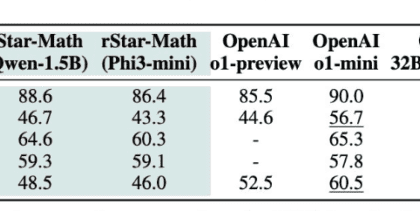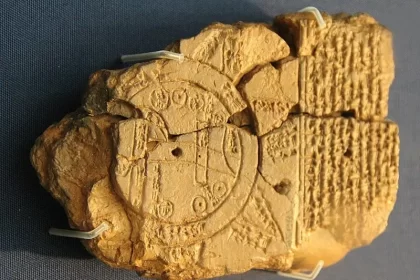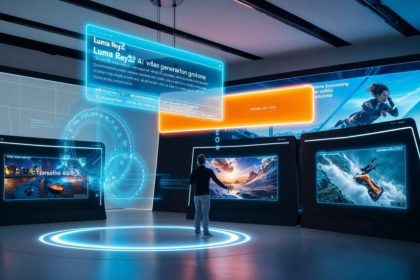Smart cities use information and communication technology for smarter and more sustainable development of urban transportation networks, providing energy for people’s consumption, securing urban spaces, etc. In the following, you will get to know 10 examples of the smartest cities in the world.
1- New York
In 2020, New York City started a smart city pilot program and placed hundreds of smart sensors in different areas of the city. These sensors collect various lifestyle data, people’s habits and daily events; In this way, municipal services such as garbage collection are managed much more efficiently. Also, phone booths are gradually giving way to charging stations so that people’s communication can be further developed.
Approximate population: 8.6 million people
2- Singapore
It is known as one of the smartest cities in the world. The average age of the people of this country is increasing rapidly; For this reason, the government of Singapore uses digital technologies and initiatives to increase the economic productivity of this country. You can see all kinds of smart technologies in all corners of the city and even inside the houses. Singapore plans to use energy-efficient lighting systems in public places and solar panels on the roofs of about 6,000 buildings by 2022.
Approximate population: 5.9 million people
3- Amsterdam
The big project of smartening the city of Amsterdam started in 2009 with more than 170 different plans. One of the most important projects is the collection of transportation and traffic data; This data is constantly being updated, and developers and city planners can use this information for accurate mapping, traffic control, and improving the city’s transportation system. Apart from these, Amsterdam has floating villages that, along with the beauty and tourist attraction, help to control the population and prevent overcrowding. These villages have also had a great impact in promoting a sustainable alternative in the inner constructions of this city.
Approximate population: 1.1 million people
4- Dubai
In early 2021, Dubai has started a seven-year plan to digitize all government and economic services such as communications, urban development, transportation, etc. The city is rapidly smartening up its infrastructure, to the extent that many of its services are now digitized and made available to citizens through the DubaiNow app. Artificial intelligence, especially in the transportation sector, helps a lot to reduce accidents caused by heavy traffic and driver fatigue.
Approximate population: 2.9 million people
5- London
Over the past few years, London has implemented several smart ideas. The Connect London program is being implemented with the aim of 5G internet coverage and fiber optic expansion throughout the city. London’s iconic lights are also expected to be transformed into sensors and charging stations for electric cars.
Approximate population: 9.4 million people
6- Hong Kong
Hong Kong has not only equipped its streets with smart lights with sensors, but has gone one step further; 5G internet compatible lights for the future. Citizens also have access to mobile phone dashboards. These dashboards show different images and maps to users and provide them with information about rain and snow, air temperature, the nearest empty parking lot, etc.
Approximate population: 7.5 million people
7- Copenhagen
In 2017, Copenhagen was able to attract the admiration and attention of the world by unveiling the Solutions Lab project. This plan has been launched with the aim of monitoring and checking air quality, energy consumption, traffic situation and waste management. Synchronizing traffic lights, electric vehicle charging stations and routing on a single platform is another initiative in Copenhagen. This platform helps a lot in increasing the safety and comfort of drivers as well as fast delivery of people’s orders. Copenhagen is currently planning to develop its smart cycling system in collaboration with the Massachusetts Institute of Technology (MIT).
Approximate population: 1.3 million people
8- Barcelona
In 2011, Barcelona hosted the first Smart City Exhibition and World Congress. From the time of holding this exhibition until today, Barcelona has been one of the leading cities in the way of smartening urban services and facilities. The streets of this city are equipped with LED light poles and can monitor traffic and congestion, pedestrian behavior, air quality and noise pollution. After all, the use of smart trash cans is one of the unique initiatives in this city. These bins are equipped with underground tanks and tunnels, which reduce the traffic of garbage collection machines and eliminate the bad smell of the space.
Approximate population: 5.6 million people
9- Boston
Boston is one of the first cities in the world to test and implement smart programs. The city’s long-term plan is to create “participatory urban planning” using mobile applications. These programs provide people with fast and accurate information about the traffic situation, the nearest empty parking lot, etc.; In addition, people can also interactively track the performance of public transportation and report issues related to the city level.
Approximate population: 695 thousand people
10- Chicago
The third largest city in the United States, Chicago, has various technologies and strategies for smart growth and development. The Array of Things program is designed to solve urban problems. In this way, citizens can help identify the unfavorable situation of crowding, traffic, polluted air, street garbage, etc. with their reports.
Approximate population: 2.6 million people
RCO NEWS


















